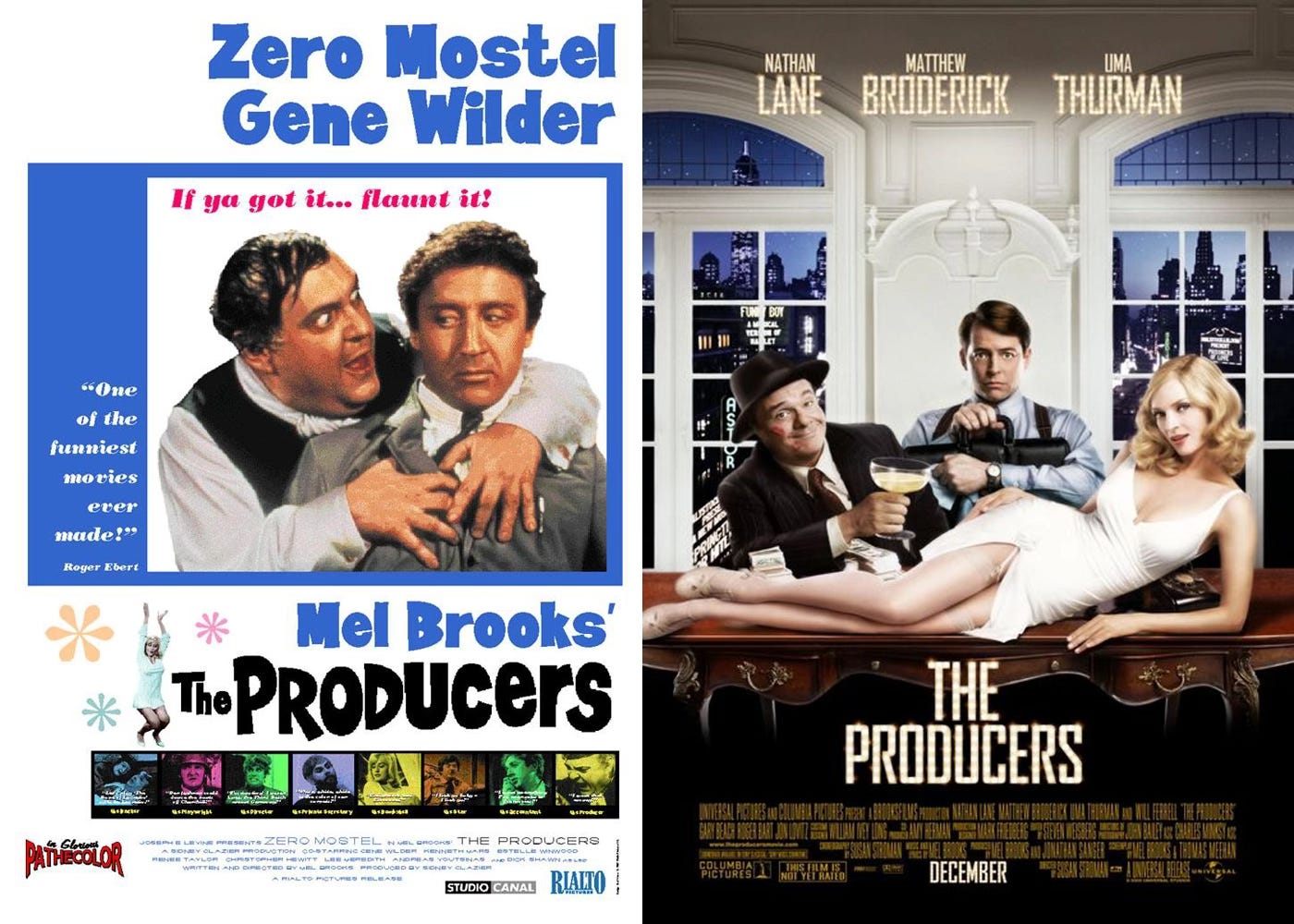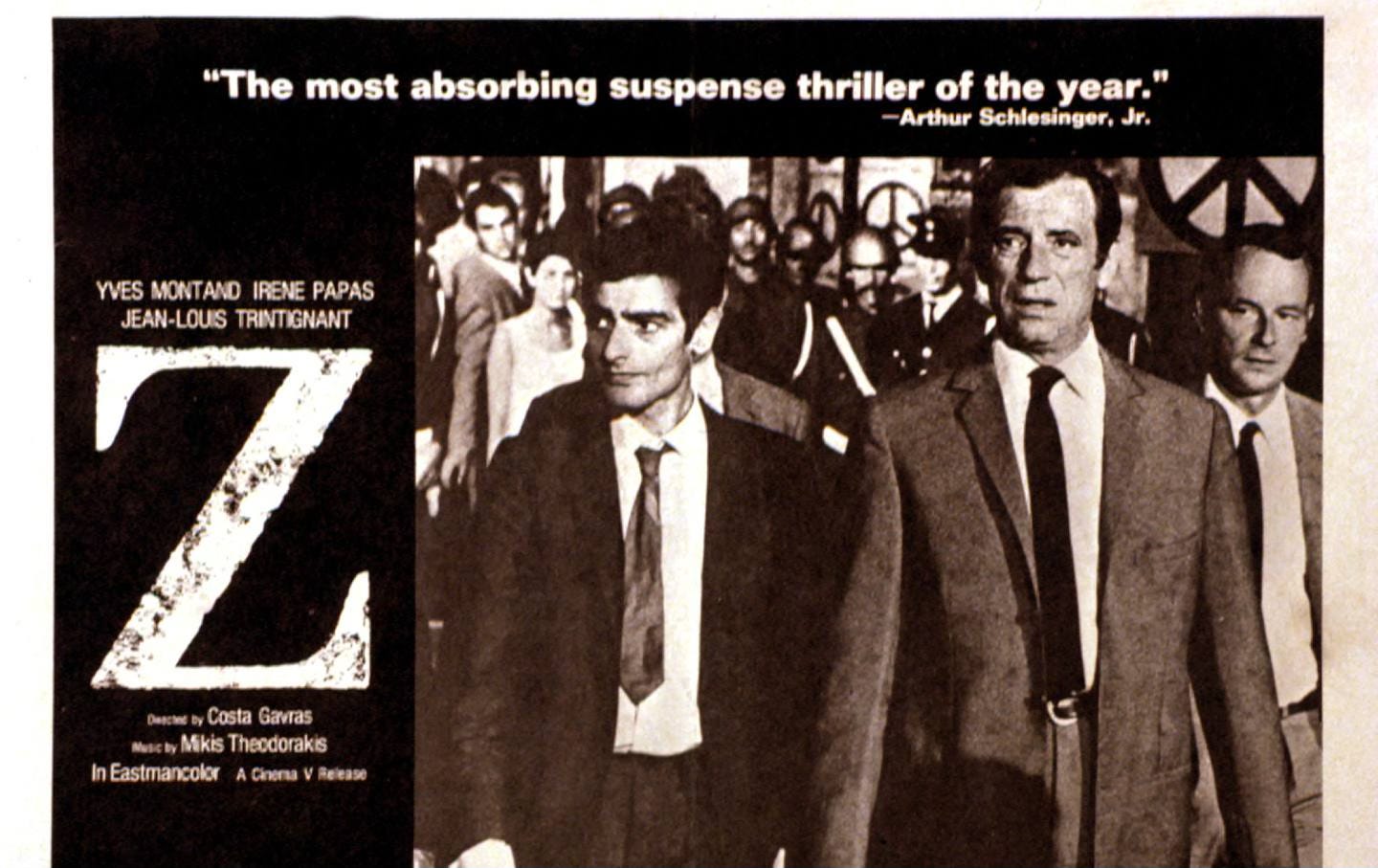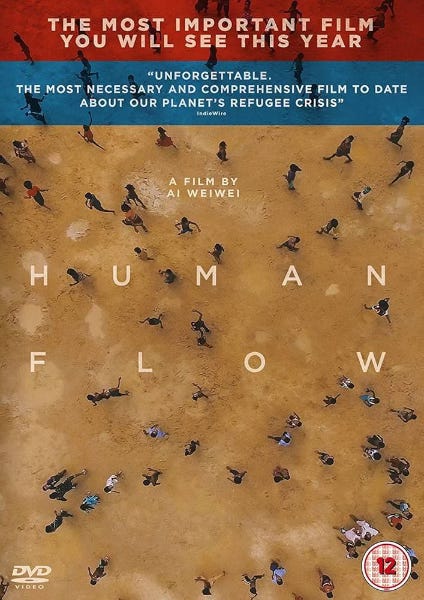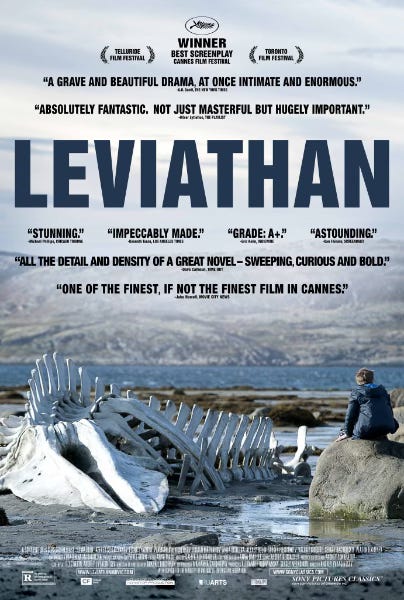By Roxanne Goodfellow, member of Indivisible Sonoma County and Rialto Cinemas Sebastopol
During these times, when many feel overwhelmed, angry, or unsure how to act in the face of chaos and horror in the news, film can be a critical tool for making meaning and building community.
"One of the most powerful ways to speak truth to power is through the medium of film,” says Stephen Rohde, political activist and author of American Words of Freedom. “In every era when authoritarian governments have repressed the human rights and constitutional liberties of the people, films have exposed the lies, the cruelty, the hate, the corruption, and the inhumanity of these governments, helping to build hope, solidarity, and resistance."
Films offer many ways to help us think deeply about authoritarianism, including:
Providing critique through ridicule and satire
Enabling catharsis, solidarity, and motivation by expressing collective rage
Showcasing the power of the individual to stand up to authority
Shining a light on the dangers of conformism and inaction
Personalizing and humanizing enormous challenges such as migration, climate change
In Sonoma County, CA, the Rialto Cinemas, where I work, has collaborated with Indivisible Sonoma County to host a Truth in Media Monthly Film Series and Discussion. The series offers a powerful selection of thought-provoking and timely films relating to political freedom, justice, immigration, environmental crises, veterans, food security, human rights, and more.
Here are the seven films we’re screening. We hope this film series becomes a tradition – not just in Sonoma County but all over the country. It's an engaging way to inspire, to provoke discussion of important ideas, and to be in community.
The Producers (1967) is an American satirical black comedy written and directed by Mel Brooks and starring Gene Wilder and Zero Mostel. The film, which won an Academy Award for Best Screenplay, follows a plot Brooks described as “two schnooks on Broadway who set out to produce a flop and swindle the backers.” To this end, the producers find a musical play celebrating the Nazis, the legendary Springtime for Hitler. The Producers was controversial from the start and received mixed reviews before finding new life as a cult film. “I think you can bring down totalitarian governments faster by using ridicule than you can with invective,” Brooks said. The film was remade in 2005 featuring Nathan Lane and Matthew Broderick, reprising the show’s successful run on Broadway.
Costa-Gavras’ powerhouse film Z (1969) is an anti-fascist political thriller that is both high-conscience melodrama and high-tempo action movie. It was the first film nominated for Oscars as both Best Picture and Best Foreign Language Film, winning the latter. Z presents a thinly fictionalized account of the assassination of democratic Greek politician Grigoris Lambrakis in 1963. The film captures Costa-Gavras’ outrage about Greece’s ruling junta. Film critic Roger Ebert named Z the best film of 1969, writing, “It will make you weep and will make you angry. It will tear your guts out… Z is at the same time a political cry of rage and a brilliant suspense thriller."
To Have and Have Not (1944), directed by Howard Hawks, is an American noir war adventure based loosely on Ernest Heminway’s 1937 novel. The screenplay was co-written by William Faulkner, making it the only film worked on by two Nobel Prize laureates. The plot centers on the romance between a freelancing fisherman of Martinique, played by Humphrey Bogart, and an American drifter and lounge singer, played by Lauren Bacall, as their love story is complicated by the growing French resistance in Vichy, France. The film challenged racial mores by showing patrons of different races socializing together in bar scenes. According to a critic, To Have and Have Not presents "one of the most basic anti-fascist statements the cinema has [yet] given us.”
The Conformist (1970) is an Italian political drama written and directed by Bernardo Bertolucci and based on the 1951 novel by Alberto Moravia. It centers on a mid-level Fascist flunky, cultivated and intellectual, but largely dehumanized by an intense need to belong to the dominant socio-political group. When he is ordered to assassinate his former professor, his mission is complicated after he begins an affair with the professor's wife. The Conformist is a case study in the psychology of conformism and fascism. It was nominated for an Academy Award for Best Adapted Screenplay and has been cited as one of the best films of all time.
Human Flow (2017) is an epic documentary co-produced and directed by Chinese artist Ai Weiwei who was imprisoned by the Chinese Ministry of Foreign Affairs for 81 days without charge. The film, about the current global refugee crisis, was inspired by Ai’s visit to a Greek island where refugees were coming ashore. He began to film them with his iPhone. In Human Flow, the viewer is taken to more than 20 countries to understand both the scale and personal impact of this massive human migration. “Human Flow is a personal journey,” Ai Weiwei said, “an attempt to understand the conditions of humanity in our days”
Leviathan (2014), a tragic Russian crime drama based on a retelling of the story of Job, is a frank portrayal of a corrupt Russia. One critic called it “the most searing attack on the current Russian political system ever shot, compelling in its moral seriousness, with a severity and force that escalate into a terrible, annihilating sort of grandeur.” The storyline involves a Russian fisherman who fights back when a corrupt mayor tries to seize possession of his ancestral home. Leviathan is directed and co-written by Andrey Zvyagintsev, who has described Russian life as “like being in a minefield. The ideas of the rule of law, of equal rights are hardly discussed here.” The title refers to both Hobbes’s Leviathan, the classic work about liberty and the state, and the whale. In the film, the man becomes the whale, beached and hopeless.
One Nation, One King (2018), originally Un Peuple et Son Roi, directed by Pierre Schoeller, shows the French Revolution from the storming of the Bastille to the execution of Louis XVI. The film includes such historical figures as Robespierre, Marat, Desmoulins, and Danton. As “One Nation, One King” begins, the Bastille has abeen stormed and a breath of liberty blows through Paris. A young washerwoman and a drifter discover the unique exhilaration of love and revolution. Together with friends in working-class Paris, they begin to realize the creation of a new political system. Within their debates and the fury on the streets lies the fate of their once sacred king and the birth of a republic.
Over the past 22 years Rialto Cinemas in California has regularly worked with many of Sonoma County’s non-profit and service organizations to present events utilizing films to bring awareness and understanding to complex issues, to create dialogue, and to help raise needed funds for many organizations.
Grassroots Connector authors and editors welcome comments, especially about interesting collaborations in your community.










